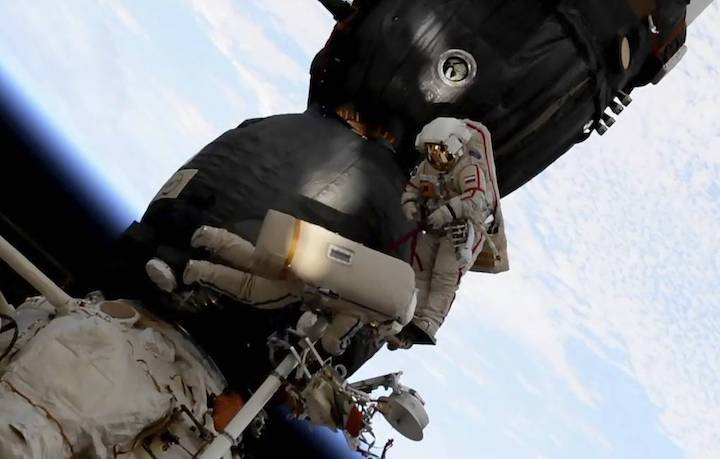17.08.2019
The scientists found out that polyethylene, water and plastics provide the best protection against radiation

Scientists believe that a helmet made of polyethylene will help protect cosmonauts’ brain from the impact of cosmic rays, Head of the Section for Manned Space Flight Radiation Safety at the Institute of Biomedical Problems, Candidate of Physico-Mathematical Sciences Vyacheslav Shurshakov told TASS on Thursday.
The success of deep space missions depends on the need to develop individual gear to protect cosmonauts from the impact of cosmic radiation. For example, heavy charged particles affect hippocampus in the brain, which causes central nervous system disorders, the scientist said.
"That is why, a simple idea arises: to protect the head with a special helmet made of something similar to polyethylene. As radiation protection specialists, we believe that special individual gear should be available to help protect cosmonauts even in a small spacecraft or station," he said.
Physicists have studied and calculated the protective properties of all well-known substances: water, aluminum, plastics and other materials. They have found out that polyethylene, water and plastics provide the best protection against radiation, he said.
"What has been discovered is as follows: substances consisting of chemical elements with a small atomic number provide good protection. They slow down neutrons well," the scientist said.
For example, the Americans have berths on the International Space Station in the module that is lined on all the sides with polyethylene plates about 5 cm thick. At the same time, the aluminum, from which the hull of a spacecraft is made, protects poorly from radiation. As alpha particles enter the nuclei of its atoms, nuclear reactions occur with the emission of neutrons that affect the human body (the so-called secondary radiation).
Currently, work is underway in the United States and Israel to develop individual protection outfits. As Shurshakov said, The US spacecraft Orion is expected to carry a male and a female dummy clad in special radioactive protection spacesuits during its first flight to the Moon. Russia is not conducting work on individual protective gear for space crews.
Quelle: TASS
